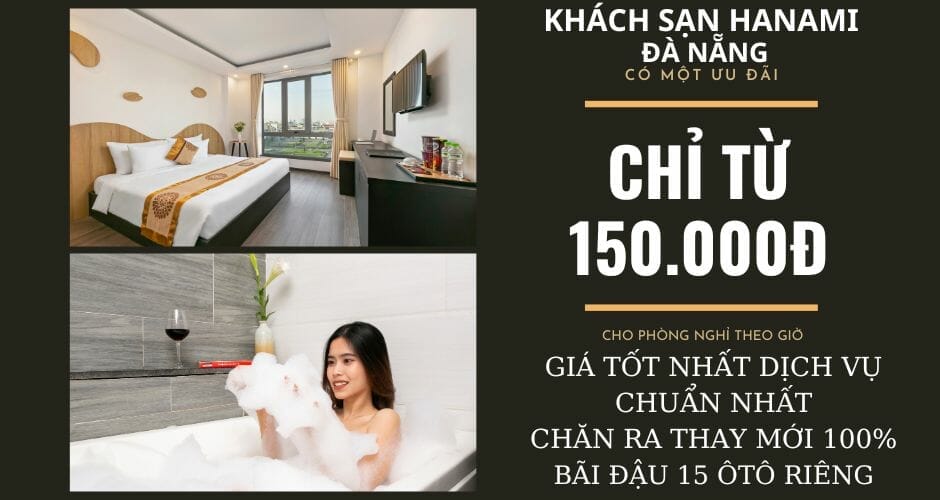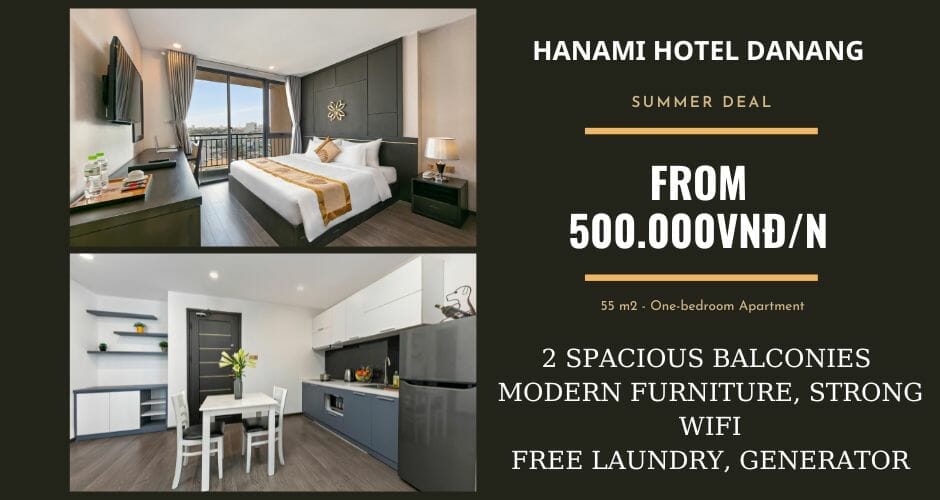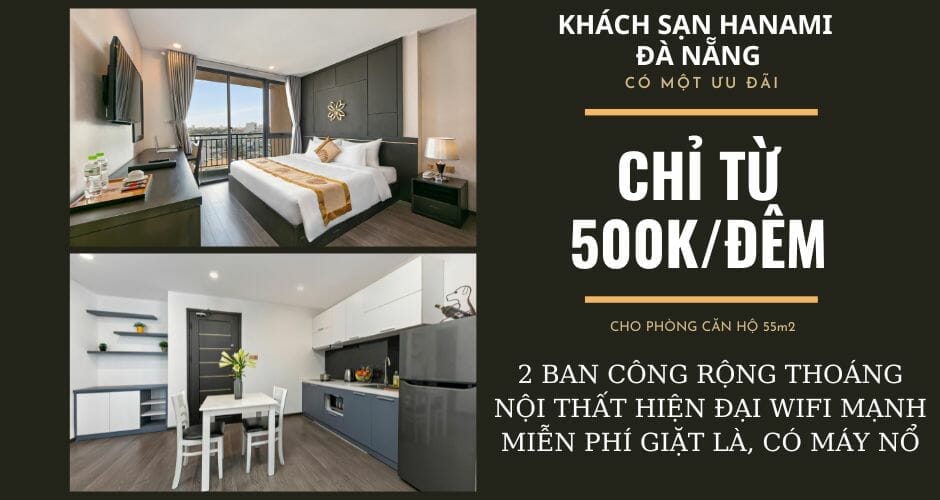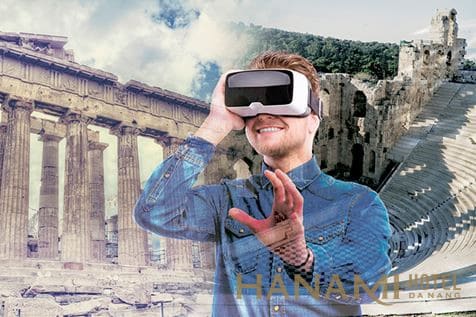Virtual reality (VR) is one of the trends being implemented by many hotels, and it has brought many positive results. It has a special appeal because it can digitally transport potential customers to a hotel or a tourist destination. Follow Hanami Hotel Danang‘s article “What is Virtual Reality (VR)? VR Applications in the Hospitality Industry” to find out the answer!
What is Virtual Reality (VR)?
Virtual Reality (VR) is a computer technology that uses images, sounds, and physical sensations to make users feel as if they are present in a virtual world. Virtual reality technology often uses VR glasses and headsets, allowing users to look around and immerse themselves in the digital environment.
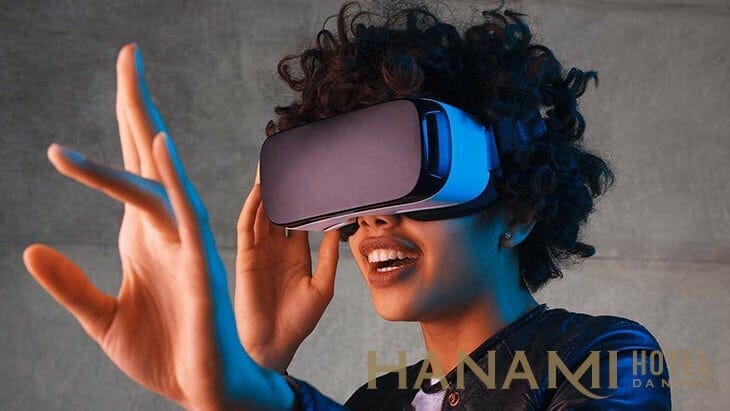
VR is a simulated experience that uses position tracking and 3D near-eye displays to immerse the viewer in a virtual world. VR headsets with a head-mounted display and a small screen in front of the eyes are typically used to generate the impression, but it can also be achieved through specially constructed rooms with many huge screens. VR normally involves audio and video feedback, but haptic technology may also allow for various types of sensory and physical feedback.
VR is a concept that has been around since 1930. However, high-quality VR headsets have just lately become widely popular. These are also the efforts of giants in the technology industry such as Samsung, Facebook, Google, and so on.
Why is virtual reality (VR) so important in the hospitality industry?
Virtual reality has a lot of fields, mainly in the entertainment industry. From a business perspective, VR is an exceedingly outstanding instrument that stimulates all senses during the experience.
In the hospitality industry, VR has become an extremely important tool to help customers capture and experience services before they actually book a hotel room. Customers can experience things for themselves rather than read unreliable information.
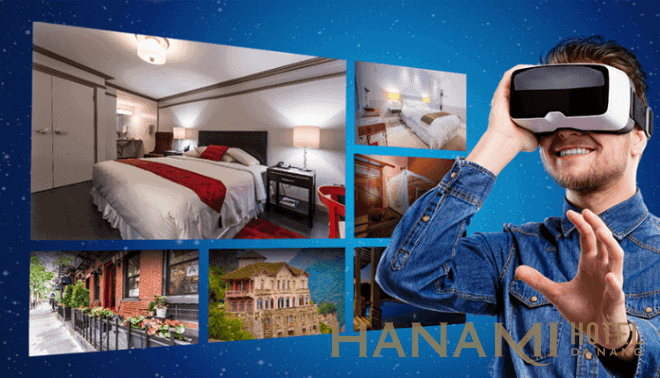
For example, VR allows customers to try out “virtual hotels” or use some “virtual services”. Indeed, hotels can continue to use VR to provide information or allow customers to experience nearby attractions, and the hotel’s services when guests check in and stay.
The use of virtual technology by hotels does not stop at customers’ hotel bookings. They also use to provide information or allow customers to experience services, nearby attractions and accommodations, and experience services when they check-in and stay.
Some examples of VR applications in the hospitality industry
Experience in Virtual Hotel
In the virtual reality industry, this is one of the most popular applications of VR technology. These trips are often offered on hotel websites, allowing guests or potential guests to view their hotel rooms before staying at the hotel.
Experience in Virtual Travel
The development of virtual travel experiences using 360-degree video technology is one of the most popular applications of virtual reality in the hotel sector now. Thanks to VR, users can experience a virtual recreation of various aspects of travel, from flights to some of the major attractions.
The process of virtual reservation
In recent times, one of the more interesting applications of VR technology is the development of virtual reality booking processes. This has recently been put to work by companies such as Amadeus, allowing customers to search for flights, compare hotel prices, and book rooms through a virtual reality headset.
Hanami Hotel Danang hopes that the above article can help you gain more useful information about “What is Virtual Reality (VR)? VR Applications in the Hospitality Industry”. See you in the next post.
Về tác giả:
Chúng tôi không kiếm lợi nhuận từ nội dung đăng tải. Các bài viết đều được biên soạn và kiểm duyệt bởi đội ngũ tác giả và biên tập viên của công ty TNHH du lịch khách sạn Hana. Xem thêm: về tác giả
